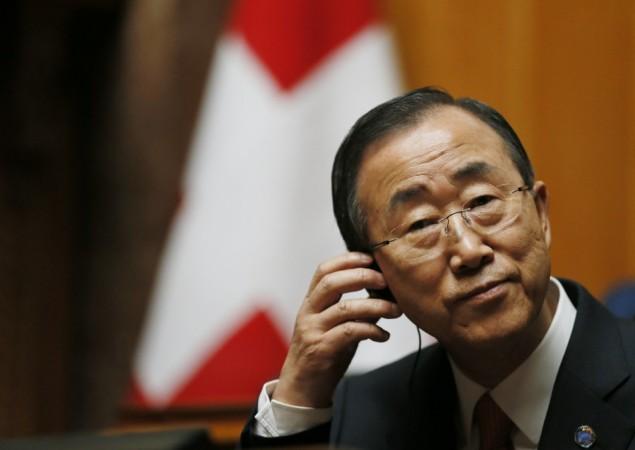
South Korea President Park Geun-hye and UN Secretary-General Ban Ki-moon, over a telephone conversation, discussed issues relating to North Korea, the island conflict among South Korea, Japan and China, and Japanese PM Sinzo Abe's recent, highly condemned visit to the war-linked Yasukuni Shrine.
During the call that was initiated by Ban, Park stated that North Korea has become increasingly unpredictable after the recent execution of Chang Song-theak (aka Jang Song-theak), an incident that resulted in a new wave of conflict. She also expressed her concern that sufferings of the North Koreans would deepen, Park's office told the Yonhap News Agency.
Park said that the New Year will be an important time to bring in peace and stability in the Korean Peninsula, and her government is in need of support from Ban and the United Nations in their efforts. The UN chief, who has been the South Korean foreign affairs minister in the past, said that he would extend his support to South Korea's efforts.
This comes a day after North Korean leader Kim Jong-un, on his New Year address broadcast in local television and radio, said there is a need of improved ties between the South and North. He has recently come under staunch international criticism for executing his uncle on charges of treason. The speech has been branded by South Korea as a desperate attempt to extend an olive branch, after months of threats, or "bellicose rhetoric" as White House senior adviser Dan Pfeiffer put it, towards the South.
"We will make aggressive efforts to improve relations between the North and the South," Kim said in his 25-minute speech. "The South side should also come forward to improve relations between the North and the South."
Meanwhile, the UN chief, during the conversation with Park, reportedly also expressed his disappointment that a new wave of conflict has surfaced in the North-East Asia, in the wake of Japanese PM's controversial visit to the war-linked Yasukuni Shrine that honors 14 class-A war criminals.
South Korea and China had long resented Japanese leaders' visits to the war shrine because they had suffered from Japan's aggression in the early 20th century and through the World Wars. The latest visit was considered an utter disrespect towards the sentiments of Japan's neighbours.













